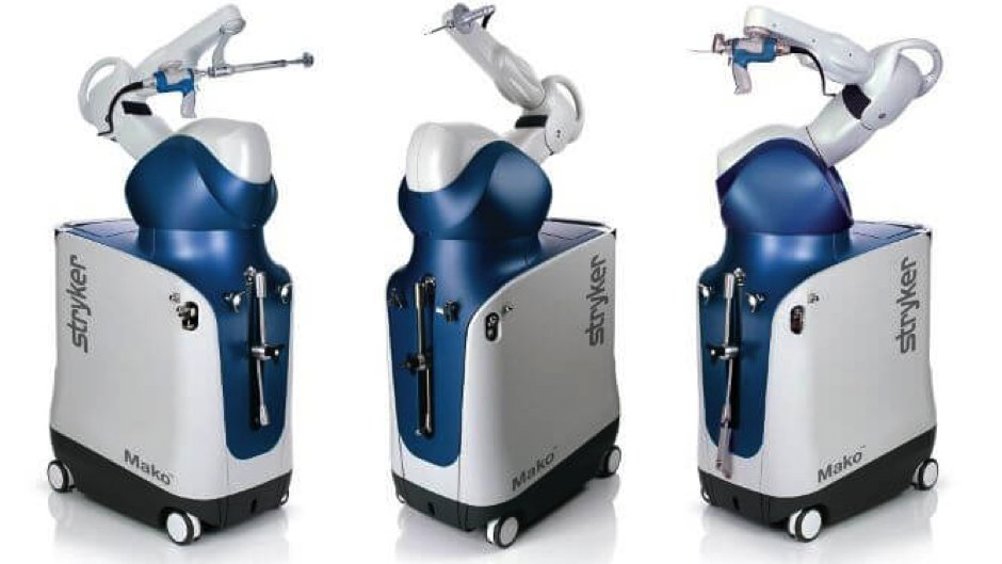Robot hip surgeons measured against humans in new trial
A new £1m study will compare the outcomes of robotic hip replacement surgery versus the traditional procedure carried out by human surgeons.

In what’s claimed to be a world-first, the RACER-Hip trial will give new insight into the value of robotic assisted surgery, using hard data from one of the most common surgical procedures carried out by the NHS. RACER-Hip is being run in tandem with the RACER-Knee trial, which is investigating use of robots in knee replacement surgery.
In robotic assisted hip replacement surgery, a robotic arm prepares the bone and inserts the components to a pre-programmed three-dimensional plan. It is thought using a robot to perform the surgery allows more precise, consistent surgical techniques, which may help to reduce variation and prevent poor outcomes and complications for patients. However, despite the robotic procedure increasing in popularity in recent years – particularly in the USA - there is currently little evidence to show that these systems are better than conventional surgery.
The RACER-Hip study - jointly run by University of Warwick, University Hospitals Coventry and Warwickshire (UHCW) NHS Trust, and the Royal Orthopaedic Hospital (ROH) in Birmingham - will aim to shed light on the outcomes of robotic hip replacement. Equal numbers of participants will be randomised to each treatment group to find out which surgical technique leads to better results. This will include asking questions about people’s ability to complete activities and their quality of life in the long-term and will also find out which method provides the best value for the NHS.
The team will invite patients from at least six NHS hospitals across England and Scotland to take part over the coming months. The first site has opened at the Royal Orthopaedic Hospital, while the Northumbria Healthcare NHS Foundation Trust has just taken delivery of one of the robots for the trial, the first time this service will be available within the NHS for hip operations in the Northeast of England. The manufacturer of the robot, Stryker, will be supporting the study costs to ensure hospitals do not have to pay extra to take part.
Register now to continue reading
Thanks for visiting The Engineer. You’ve now reached your monthly limit of news stories. Register for free to unlock unlimited access to all of our news coverage, as well as premium content including opinion, in-depth features and special reports.
Benefits of registering
-
In-depth insights and coverage of key emerging trends
-
Unrestricted access to special reports throughout the year
-
Daily technology news delivered straight to your inbox










Water Sector Talent Exodus Could Cripple The Sector
Well let´s do a little experiment. My last (10.4.25) half-yearly water/waste water bill from Severn Trent was £98.29. How much does not-for-profit Dŵr...